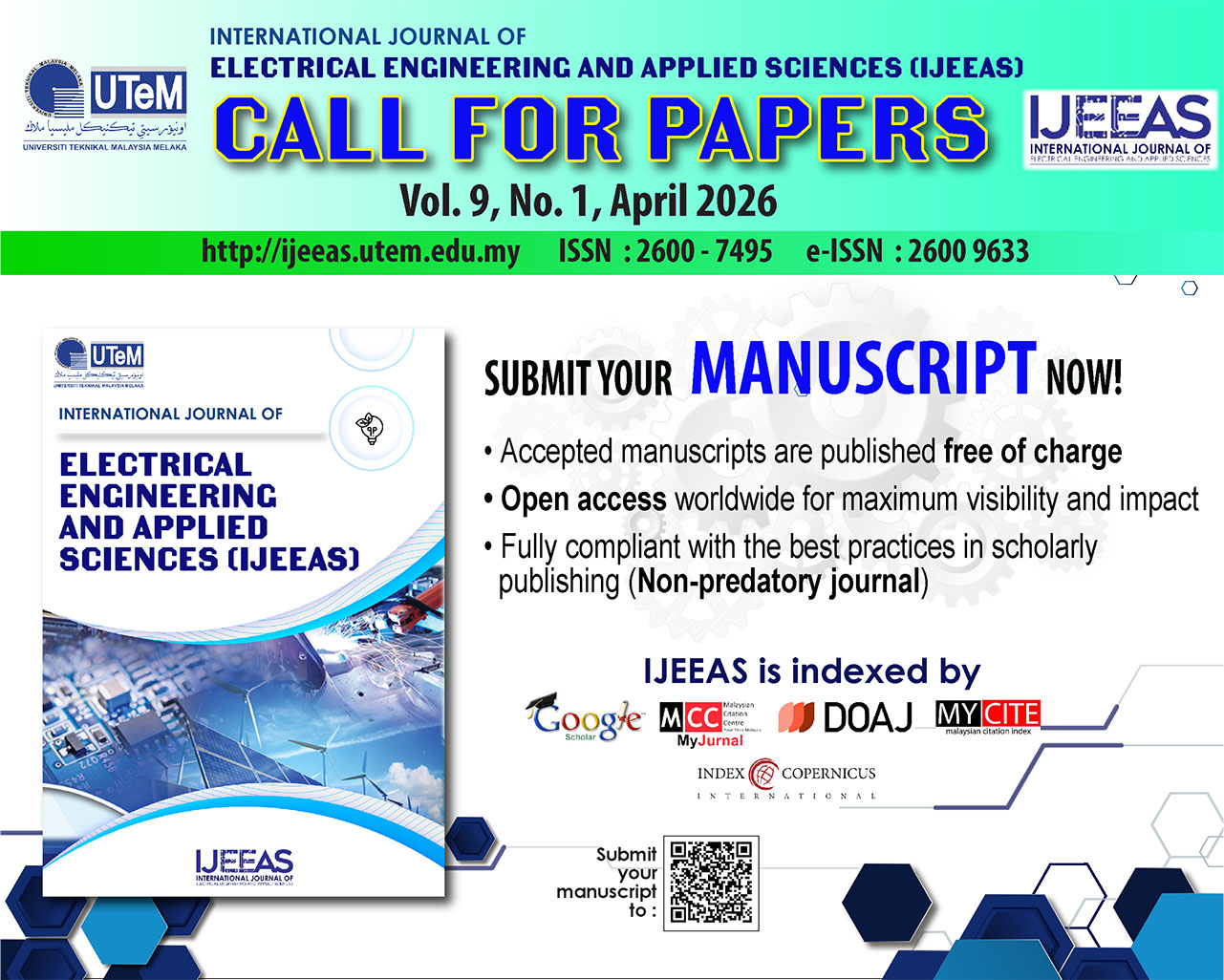Enhancing PV System Stability in the Angolan Power Network through Modeling and Simulation of Fuzzy Logic Controllers.
DOI:
https://doi.org/10.54554/ijeeas.2024.7.02.010Abstract
The power transmission network is responsible for transporting the electrical energy from generating plants to different substations. Electrical energy has become extremely important in this current world. Companies, churches, schools, and households need more electricity to satisfy their daily needs. This increase in demand causes several challenges to the power transmission networks in Angola such as power outages. The output power for renewable energy such as wind and solar energy systems depends on many factors such as solar irradiance, temperature, wind speed, geographical location, air density, swept area, wind turbine configurations, and many other factors. These factors are responsible for the inconsistency and variability of the wind and solar energy systems. Therefore, it is important to develop an efficient controller that can operate in different systems such as solar and wind energy systems to maintain a stable power and continuous flow of electricity. In this research, the Fuzzy Logic Controllers based Maximum power point tracking (MPPT) was used to obtain a stable output power and also to mitigate the faults in the system. The proposed controller was introduced into a PV system which was integrated into an unstable power network to increase the PV system's performance by enabling the PV grid to generate its maximum power which is 30MW and to maintain the power network stability. Furthermore, The voltage per unit in all three phases of the power network was increased from 0.92 p.u to 1 p.u due to the integration of the proposed controller into the PV system. The integration of the PV system alone was able to increase the per-unit voltage profile during high load demand, but for better stability, the Fuzzy controller was introduced to ensure that the additional voltage supplied by the PV system to the network is within the standard voltage allowable limits to keep a safe and stable operating of the system.
Downloads
Downloads
Published
How to Cite
Issue
Section
License
Authors who publish with this journal agree to the following terms:
- Authors retain copyright and grant the journal right of first publication with the work simultaneously licensed under a Creative Commons Attribution License that allows others to share the work with an acknowledgement of the work's authorship and initial publication in this journal.
- Authors are able to enter into separate, additional contractual arrangements for the non-exclusive distribution of the journal's published version of the work (e.g., post it to an institutional repository or publish it in a book), with an acknowledgement of its initial publication in this journal.
- Authors are permitted and encouraged to post their work online (e.g., in institutional repositories or on their website) prior to and during the submission process, as it can lead to productive exchanges, as well as earlier and greater citation of published work (See The Effect of Open Access).







